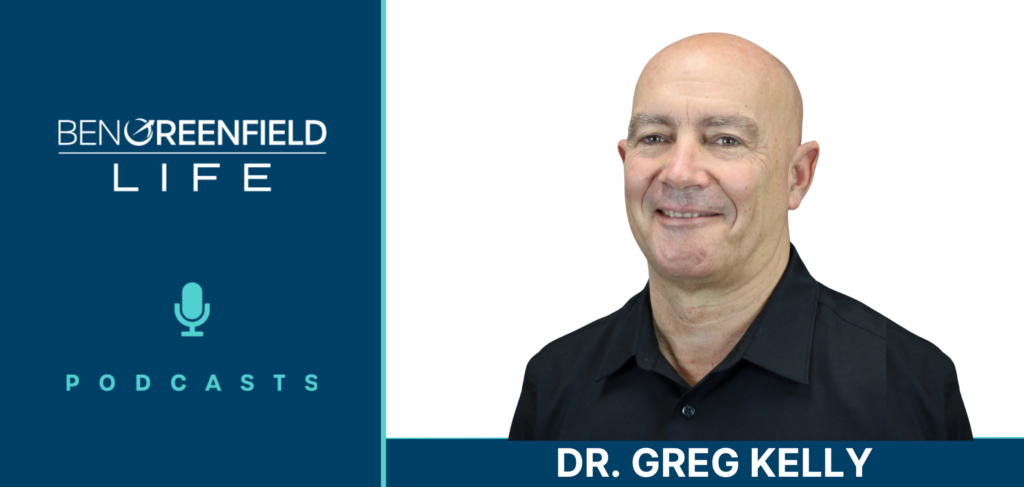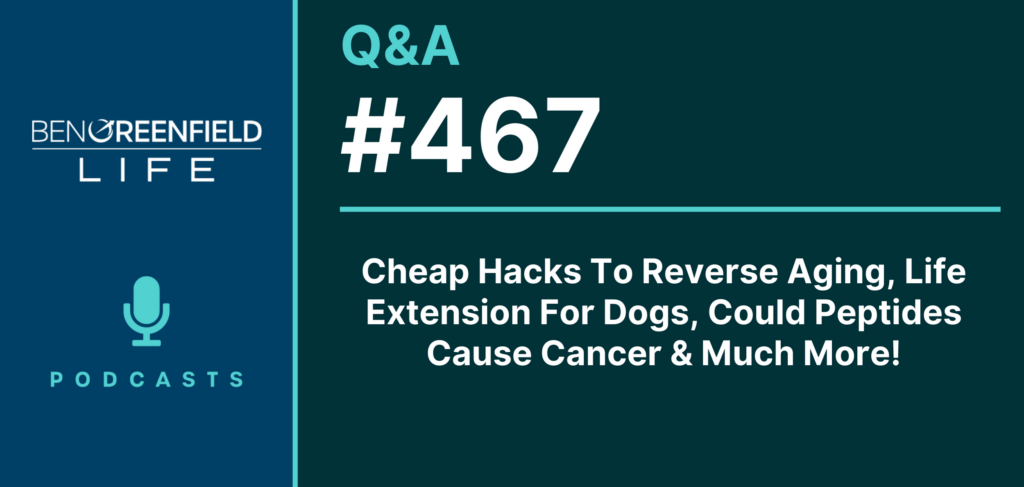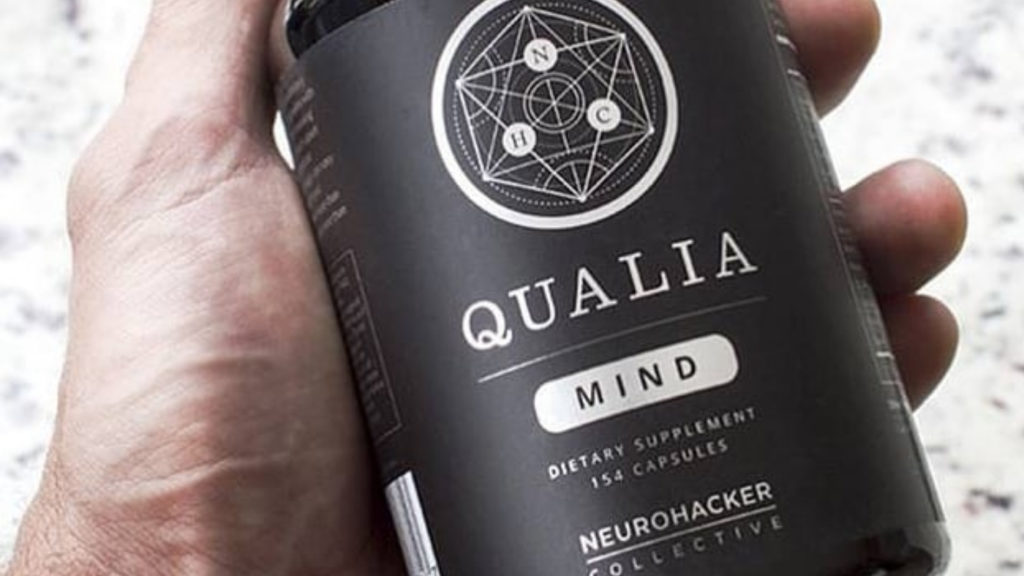September 5, 2017
Protein is probably one of the most oft-discussed and over-hyped subjects in the fitness and health community. You're no-doubt aware of the benefits and importance of this macronutrient, so despite my belief that most people consume far more protein than they actually need, I’m not going to dwell in this article too much on how much protein you should be eating. That’s a topic I’ve already addressed in my article “How Much Carbohydrate, Protein and Fat You Need To Stay Lean, Stay Sexy and Perform Like A Beast” article.
Furthermore, due to the buzz in performance, ketosis and fat loss circles in recent years, you're most likely also aware of “amino acids“, key building blocks of protein often discussed and marketed as either essential amino acids (my preferred way of getting protein building blocks) or branched chain amino acids (inferior, but less expensive).
However, unless you’re immersed in an extremely geeky dark underworld of health, fitness and anti-aging, you may not be familiar with a new player in the protein arena, or the variety of roles this new player performs in your body, and the properties it has to protect us and benefit our health. And they’re called…
….peptides.
Over several decades of research, it’s been discovered that peptides play a significant role in the regulation of multiple mechanisms of biological aging. After forty years of study, a guy named Professor Vladimir Khavinson has become a pioneer in the discovery of organ-specific peptides called “bioregulators.” The years of testing and research have culminated in what’s recognized as a new “Russian peptide revolution” (I don't know why those darn Russians are so interested in discovering the ultimate immortality pill, but they are way ahead of the curve on this stuff).
Isolation of these small peptides has led to a peptide theory of aging, which basically submits that the average lifespan can be increased by slowing down the aging process. The theory proposed by Professor Khavinson is based on the underlying assumption that changes in gene expression result in decreased protein synthesis, eventually leading to aging and the development of diseases. Stimulation of peptide production through use of “peptide bioregulators” is designed to affect a specific organ, system or condition in the body, using a highly specific short chain peptide to act as a shortcut to initiate protein synthesis and increase organ function.
If you’ve been keeping up with me lately, you’ve noticed I’ve been increasingly exploring the underground world of amino-acid sequences, which include compounds such as peptides. For a quick introduction to my latest dive into fringe supplements, my articles on BPC-157 and TB-500 (which are indeed peptides) outline how to inject the under-the-radar, non-FDA approved but highly efficacious healing peptides under the skin or into the muscle to massively speed up injury healing.
But even BPC-157 and TB-500 may not even hold a freakin’ candle to these Russian-researched peptide bioregulators and in my opinion (especially after subcutaneously injecting a 10 day cycle of one of the anti-aging peptides you’re about to discover below) this is an exciting field of development. There are an emerging range of synthetically created natural analogues and peptide bioregulators that serve the same role as those developed naturally and organically in the body, but that significantly decrease as you age, resulting in muscle loss, worn skin and hair, sore joints, drive loss and other aging symptoms.
So in today's article, you're going to discover everything you need to know about these new peptides, how to use them (this is fringe knowledge!), and any precautions or side effects you should be aware of.
Breaking Down Peptides
So what are peptides, exactly?
Put in basic terms, a peptide is simply a sequence of two or more amino acids, or rather a small protein which consists of amino acids linked in a chain.
To better understand the nature of peptides, it helps to consider that proteins are made up of one or more polypeptide molecules. The proteins that we obtain through food are split under the influence of gastric enzymes into small peptides which have many different functions in the bodily systems. This is where the “bioregulation” component comes in, with bioregulation being any biological process that regulates something.
One of the notable properties of peptides is that they possess the ability to bioregulate the activity of certain molecules, and because of this, peptides influence body functions in several ways and can act like both neurotransmitters and hormones. One of the more interesting applications of peptide use is in their anti-aging or life extension properties. Another is the ability of peptides to stimulate or activate inherent genetic abilities. This property of peptides to influence different organ systems in this way was initially shown by Nobel Prize winner I.P. Pavlov.
Each organ and body function has its own unique peptide bioregulator. As mentioned earlier, the characteristic of peptide bioregulators that allows them to slow aging is due to the fact that they've been shown to shortcut the protein synthesis process. When peptide bioregulators are active, organs can build and tissues can develop easier and faster.
The Link Between Peptides & Aging
One of the questions Dr. Khavinson sought to explore in his fascinating peptide research is:
“What is the upper-limit of human lifespan, and how can we protect against premature aging? Is there potential to prevent age-related diseases and restore disordered body functions?”
In other words: what is the link between peptides and aging? In a nutshell, aging involves the gradual process of a slowdown in protein synthesis, which eventually leads to malfunction and death of a living organism. Various stress factors such as lifestyle, disease, work, ecology, and genetics lead to this slowed synthesis of protein in various organs and tissues.
Currently, there does indeed exist a class of substances that aim to slow this process and therefore prolong lifespan of certain animals. These substances are known as “geroprotectors.” Some more common geroprotectors include melatonin, carnosine and metformin. But, as you can read about in “The Dark Side Of Metformin: A “Longevity Wonder Compound” That Promises to Extend Life For A Nickel A Pop”, many of these compounds are either only mildly effective or downright dangerous with long term use.
In contrast, peptide bioregulators – first discovered and researched in the 1980s by professor Khavinson – are based on the premise that each body organ uses a very specific peptide that acts like a gene switch, triggering or “regulating” a biological reserve. When isolated from individual organs and glands, these specific peptides stimulate protein synthesis of the tissues they are derived from.
For example, a peptide taken from the prostate gland will be a regulator of prostate function and trigger the biological reserve of the prostate. In other words, peptides are tissue-specific and have beneficial effects on the organs which they were extracted from. This means that instead of experiencing protein degradation and tissue or organ breakdown with age, peptides enable you to actually synthesize or repair tissue and organ as you age. Another common use for most injectable forms of peptides is to bump up production of Human Growth Hormone (HGH), which can increase lean body mass, lower body fat percentage, and improve speed of recovery.
How To Use Peptides
Peptide supplements can be divided into natural and synthesized preparations. Natural peptides, classified as “Cytomaxes,” are extracted in a safe and humane manner from organs and tissues of young animals.
When consumed or injected, these peptides then get broken down into amino acids that match the DNA in the respective body system or organ. Synthesized peptides, classified as “Cytogens,” have an immediate impact compared to natural peptides. But the synthesized bioregulators contain only one peptide molecule, compared to the natural peptides, which include entire groups of molecules. One more popular method of peptide use is to use synthesized peptides, followed up with a course of natural peptides.
To better understand, here’s a quick look at two of the more common synthesized peptide bioregulators among the handful out there on the market. First, Crystagen is a synthesized peptide complex that is touted as an immune system enhancer for faster recovery from sickness or for a more robust immune system. A short peptide, it contains only three amino acids (alanine, glutamic acid, aspartic acid). It is intended to recover and normalize function of the immune system by reducing peptide deficiencies and restoring protein synthesis inside immune-related cells.
In contrast, Vesugen, another synthesized peptide, is comprised of a peptide complex derived from the vascular system. As you’d probably guess, Vesugen is recommended for anyone whose blood circulation may be compromised or who may want better cardiovascular health or performance. Upon ingestion, it is transmitted to the tissues of the blood vessels and acts directly on the DNA structure. The peptide molecules integrate into the DNA or replace old or damaged molecules in the DNA structure, thus restoring the protein that keeps the cells together. Restored DNA structure provides normal functionality of the vessel cells and the tissues of the vascular system as a whole.
So let’s say you wanted to try one of these peptides for the immune system, for the vascular system, or any other system for which the vast world of peptides could target.
Here’s how you’d do it…
Typically, you’ll purchase a month's worth or “cycle's” worth of the peptide in powdered form in a vial, “reconstitute” the peptide substance with the right amount of sterilized or bacteriostatic water, and then administer it via a subcutaneous (under the skin) insulin syringe injection. You can buy a convenient combo-pack of insulin syringes, bacteriostatic water and alcohol swabs here (you'll want this for the peptides discussed later in the article that require reconstitution).
My preferred source for the peptides I discuss above actually come in convenient oral capsules. The efficacy of peptides taken orally or via injection depends entirely on the structure of the peptide itself and may also depend on how they are encapsulated. The peptides discussed further in this article do require reconstitution are probably best administered by injection.
If you have no clue how to reconstitute a powder with sterilized or bacteriostatic water, then simply click here to read my article on BCP-157, in which I spell it out in great detail and include links to helpful calculators that tell you exactly how much water to use based on the size of the peptide powder vial you have.
When the powdered form of your peptide is reconstituted, it will then be a liquid. This liquid must be saved in a dark area and kept undisturbed, except for when you are withdrawing some of the solution into the syringe for use. Preferably, it should be kept in the refrigerator or freezer in order to maintain the quality and effectiveness long term. Peptides are extremely fragile and you have to take extra care of them or they simply won’t perform the way they’re supposed to. Even when they're in the refrigerator, try to keep them undisturbed and in a place where someone won't, say, knock them around while reaching for the milk.
Peptides can be administered by an intramuscular or subcutaneous injection, or orally by either measuring your dose of the reconstituted liquid and holding it in your mouth for 90-120 seconds before swallowing or popping the capsules mentioned above. You can get oral measuring syringes so that you're not sticking needles in your mouth.
When it comes to peptides, there’s no shortage of variety in the specific complexes available, so rather than stopping with the immune and cardiovascular system, let’s take a closer look at three of the other current, most popular and effective peptides (the first of which I just finished personally injecting with a ten day cycle).
Epitalon: The Anti-Aging Peptide
Epitalon is one of the very few substances that has actually been shown to be able to directly activate the telomerase (telomere terminal transferase) enzyme in humans. For a brief primer on the relevance and importance of telomeres, check out my recent conversation with Jason Shelton from Teloyears.
Telomerase renews (elongates) the telomeres, which are responsible for the protection of human DNA from damage and cancer causing errors. A decreased rate of telomere shortening can thus be equated with a decelerated rate of aging.
Here’s the recommended dosage instructions for Epitalon:
Dosage: 5-10mg per day
Frequency of injection: 1 injection per day for low dose, 2 injections per day for high dose (divided between morning and late afternoon). Injections for this and other peptides can be subcutaneous (under skin, usually by bellybutton).
Duration: 10-20 days
Repeat cycle: 1-2x/year
Thymalin: The Death-Defying Peptide
Thymalin is an immunomodulator polypeptide derived from the thymus gland. Its effectiveness was confirmed in a 2002 study, which concluded that…
“The obtained results convincingly confirmed the ability of the bioregulators to normalize the basic functions of the human organism, i.e. to improve the indices of the cardiovascular, endocrine, immune, and nervous systems, homeostasis, and metabolism.”
In another 2003 study involving 266 elderly people over the age of 60, 2-3 years of treatment with Thymalin was shown to reduce all cause mortality over a timeframe of 6-8 years by a factor of two. Application of the bioregulators over a 3 year time frame showed increased liver detoxification function and intensified bone tissue density over the subsequent 5 year observation period.
Here’s the recommended dosage instructions for Thymalin:
Dosage: 10mg per day, subcutaneously or intramuscularly (the study above used intramuscular injections, but subcutaneous can be very effective).
Frequency of injection: 1 injection per day
Duration: 10 days
Repeat cycle: once a year
GHK-Cu: The Tissue-Remodeling Peptide
This peptide has been shown to possibly repair damaged skin faster, reverse damaged genes, and even fix age-related cognitive decline.
GHK-Cu possesses a plethora of biological actions, including activation of wound healing, attraction of immune cells, antioxidant and anti-inflammatory effects, stimulation of collagen and glycosaminoglycan synthesis in skin fibroblasts and promotion of blood vessels growth. Recent studies also indicate its important role in stem cell biology and anti-tumor defense. Since GHK-Cu plays an important role in skin biology, it is also widely used in cosmetics as a reparative and anti-aging ingredient.”
The recommended dosage instructions for GHK-Cu are tough to hunt down, but based on the research studies GHK and DNA: Resetting the Human Genome to Health and The Human Tripeptide GHK-Cu in Prevention of Oxidative Stress and Degenerative Conditions of Aging: Implications for Cognitive Health, the dosages are:
Dosage: 1.5mg per day, subcutaneously or intramuscularly (although up to 200mg have been successfully and safely used).
Frequency of injection: 1 injection per day or split dosage into multiple injections per day
Duration: 5-10 days
Repeat cycle: once a year
Do Peptides Have Bad Side Effects?
Of course, there’s the ever-important question of whether these things are going to cause you to grow a third limb, sprout unsightly nipple hair, give you explosive diarrhea, or expose you to metals or toxins.
All peptide bioregulators I’ve recommended above undergo sanitary chemical tests for toxic elements. In addition, with thousands of patient data over the last forty years that you can view at Professor Vladimir Khavinson’s peptides research website here , no side-effects or contraindications have been reported. Fact is, peptides and amino acids are present everywhere and completely natural. But as with any supplement, vitamin, or medication, each peptide has its own unique dosage instructions. You will want to start with the minimum recommended dose and adjust accordingly, depending on how your body responds.
Furthermore, you should know that these things are largely unregulated by the FDA and if you are a competitive athlete in a sport sanctioned by NCAA, WADA, USADA, etc. then you would best be served by checking the GlobalDro.com website before ingesting or injecting any substance unless you’re 100% certain that it’s legal for your sport.
Summary
I’ll readily admit, despite these being naturally occurring compounds in the body, many peptide complexes do not have long term safety studies in humans, but do have decent track records in animals. So once again, I must emphasize that although I've personally already started using peptides myself with extremely satisfactory results, I'd recommend you proceed at your own risk.
Ultimately, as bioregulators, these peptide supplements act as signals that enable specific gene activation and tissue or organ support and repair in the human body. From a long-term health and longevity standpoint, it appears that the developments and research discussed in this article are leading to breakthroughs in control and understanding of how peptide bioregulators can slow the aging process.
Since zero adverse reactions have been seen in any of the short-term human clinical trials to date, I'm very, very interested in this fringe field of “better living through science”. You can use any of the resources above to peruse the peptides currently available from the sources I've personally hunted down, researched and will vouch for.
In the meantime, if you have questions, thoughts or feedback for me about peptides? Leave your comments below and I will reply!
The information in this article is provided as an information resource only, and is not to be used or relied on for any diagnostic or treatment purposes. This information is not intended to be patient education, does not create any patient-physician relationship, and should not be used as a substitute for professional diagnosis and treatment.














The dosing suggested for Epitalon here is misleading. The analogue is much more potent and requires 1/10th as much.
HELP! i’m so confused. i have 10 vials of 10mg each of GHK-cu. i believe i’m supposed to reconstitute it with bacteriostatic water 1:1 ratio but i’m not sure if this is correct. i don’t know how much i’m supposed to inject — articles use mcg, ml and mg. i don’t know how much to take or how often or how long. i’m 61 years old. thank you
Hi Teresa. Are you using the one from Aseir? https://bengreenfieldlife.com/article/weekly-roundup-articles/6-12-20/
What do you think about GHK-Cu as a nasal spray? maybe 1mg 3-6x per day?
Dr. Lieurance and I discussed proper administration of a nasal spray here: https://bengreenfieldlife.com/podcast/biohacking-podcasts/medical-biohacking/
is it best to cycle epitalon, GHK-CU, and thymalin one at a time or can they be staked without any loss of potency?
Very Kewl
Very interested in Testoluten. Is it efficatious in your opinion? Any studies you can direct us to?
the research on testoluten is pretty sparse. At least here in America!
Thank you for the incredible information as always. In the very beginning of the article you mention you can take these orally or inject them. I’m not sure I’m ready for injections and would prefer to take them via capsule if it’s possibleand effective. Can you clarify if there is any positive effect when taken orally, and if that is indeed a possibility?
Yes, but they are MORE efficacious with injection.
HI Ben,
Curious as to what positive effects you experienced from your 10 day cycle of epithalon. Would you please lay out in more detail your experience — subjective and objective changes…
exciting stuff. thanks much.
Crystagen sells the peptides as amino acid capsules. Are these ingested orally or do we need to break the capsules and mix with water and inject? I am confused.